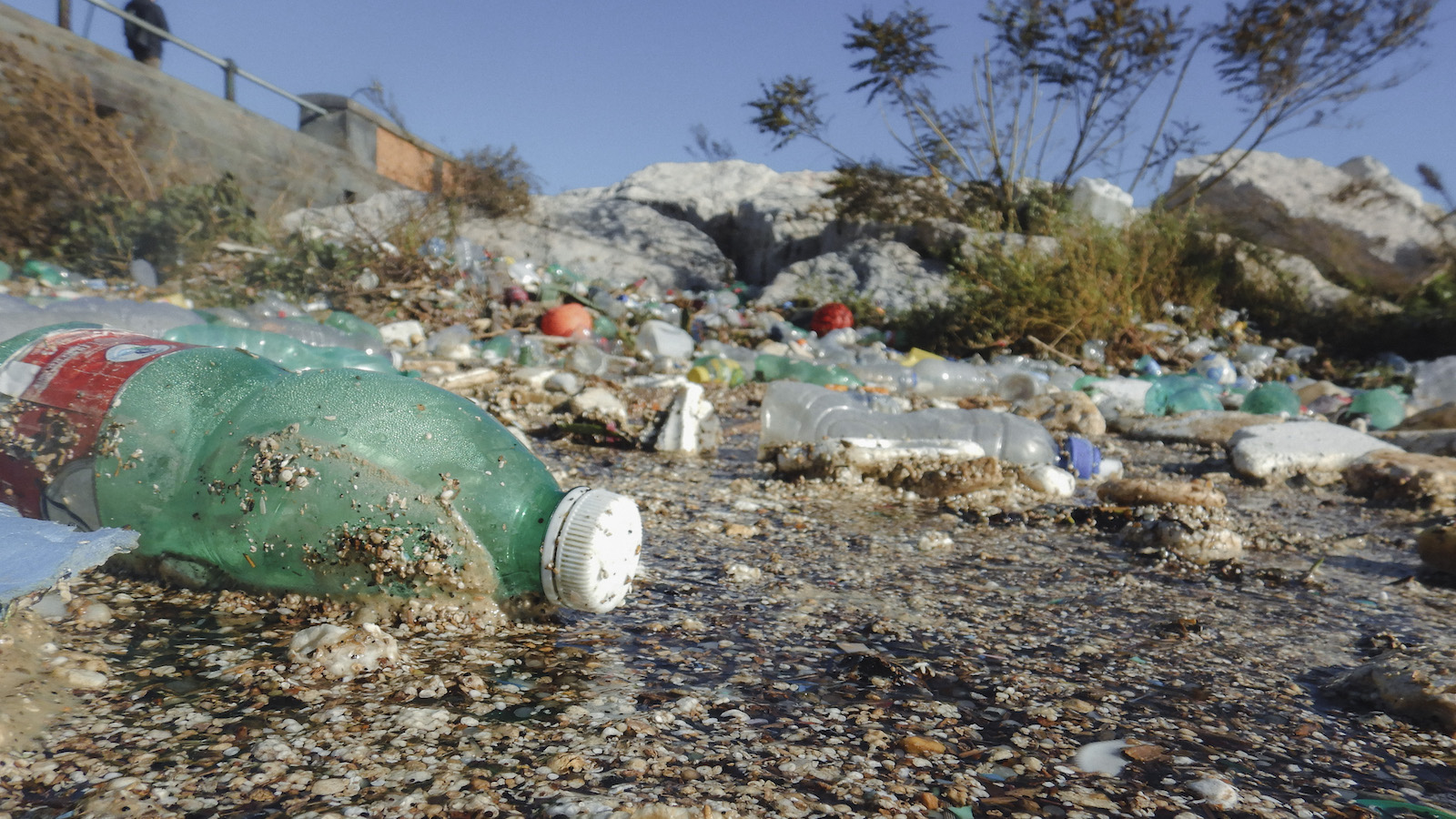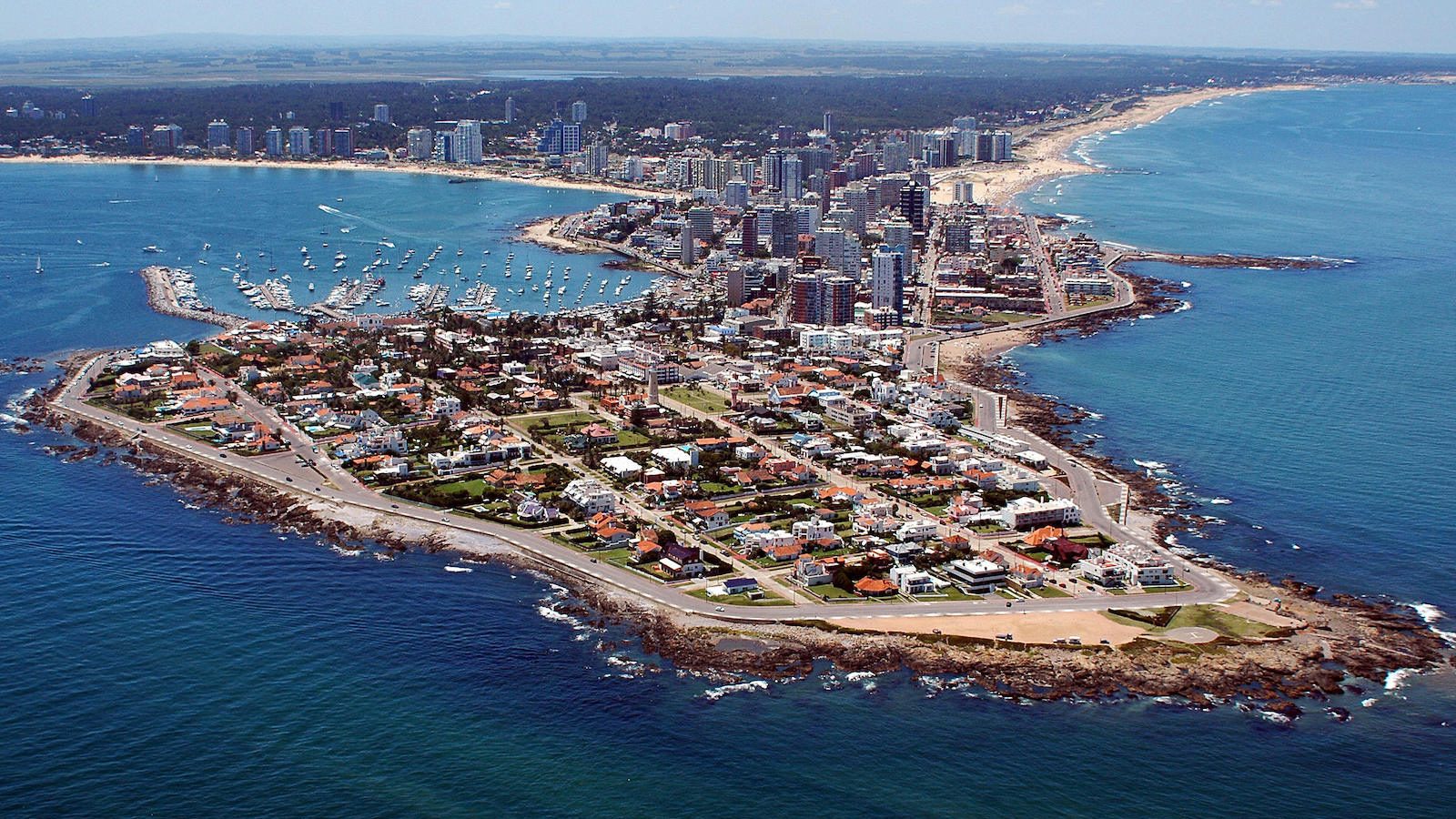Last March, environmental advocates celebrated a landmark victory when United Nations negotiators agreed to write a binding global treaty on plastic pollution. As the meeting concluded, diplomats emotionally declared that multilateralism is “still alive,” and called the intergovernmental environmental deal the most significant since the 2015 Paris Agreement. The treaty couldn’t be more urgent, as the production of plastic — made primarily from fossil fuels — is expected to soar over the coming decades, adding millions of tons of waste to the oceans and greenhouse gas emissions to the atmosphere.
Now comes the hard part: hammering out the details of the treaty. Representatives from 135 countries spent last week in Punta del Este, Uruguay, at the first of five sessions of an “intergovernmental negotiating committee,” or INC, that is expected to produce a final treaty by the end of 2024.
If last week’s negotiations are any indication, reaching that end goal will be an arduous, divisive process, with some countries pursuing a comprehensive agreement to phase down plastic production while others seek to water down the treaty’s ambition. Observers noted with frustration that negotiators failed to agree on virtually any of the conference’s main agenda items, including the election of a body to organize future sessions and the resolution of questions related to the treaty’s scope and objectives.
“It’s really obvious when you look at it that the oil and gas exporting states are trying to slow things down with procedural hurdles,” said Neil Tangri, science and policy director for the nonprofit Global Alliance for Incinerator Alternatives. He said more than two days of the talks were spent in unproductive discussions over a forum for trade groups and non-governmental organizations, which he said could have taken place outside the limited hours for negotiation.
If anything, Tangri and other experts watching the negotiations said they helped crystallize the battle lines that will shape the rest of the talks. On one side are countries including the United States, Qatar, and Saudi Arabia — all major oil and gas producers — that are pushing for a treaty focused on recycling and waste management. They are opposed by a diverse “high ambition coalition” of countries including Norway, Rwanda, Canada, and the U.K., which want a treaty that addresses every stage of plastics’ life cycle. Some of these countries want to restrict the extraction of fossil fuels that are slated to become plastics’ main feedstock.
Environmental advocates say the so-called “low ambition coalition” of countries is attempting to bend the plastics negotiations to its will by trying to replicate key features of the Paris Agreement, such as consensus-based decision-making. Graham Forbes, plastics global project leader for Greenpeace USA, said this would be a big mistake: A consensus requirement would lead to a “lowest-common-denominator approach,” he said, privileging noncontroversial policy proposals and giving obstructionist countries veto power over more ambitious ones. It could slow progress on the plastics treaty — much as it has done at the U.N.’s annual climate talks.

In a memo released ahead of the plastics talks, the nonprofit Center for International Environmental Law noted that consensus-based decision-making is “the poison pill that has undercut the climate convention for three decades.”
The U.S., Japan, Egypt, and others also pushed for a Paris Agreement-style “bottom-up” approach in which individual countries set their own nonbinding plastic pollution targets and report back on their progress to a global body. The Center for International Environmental Law said this approach would compromise the treaty’s effectiveness and risk turning it into a “trade show and public relations platform” rather than a mechanism for action and accountability.
Neither issue was resolved last week. Tangri said they will resurface at future sessions of the INC, along with other pressing questions that will shape the treaty’s long-term success, such as the voting rights of geopolitical blocs like the European Union and the definition of key phrases like “plastic pollution” and “life cycle.” He said it’s possible some progress will be made in between sessions as countries, nonprofits, and industry representatives continue to meet online.
Meanwhile, other observers noted promising steps at the conference to recognize the need to eliminate toxic chemicals used in plastic production and to address the plastic crisis’ human rights implications. Early in the week, delegates from around the world celebrated the historic creation of a platform for U.N. member states to represent waste pickers’ interests in the negotiations, giving a voice to the millions of people worldwide who collect trash for little to no compensation as part of the informal recycling sector. Members of the group are pushing for a just transition for these workers, including alternative job support when it comes time to close large dump sites.
Many countries and green groups continue to push for more equitable representation, including by limiting the plastic industry’s presence at future discussions. Environmental advocates criticized the U.N. Environment Programme’s decision to fund a $400,000 multistakeholder forum — a kind of talk shop for civil society and trade groups that was held just days before formal negotiations began — and said the U.N. should instead provide funding to bring more representatives from organizations based in the Global South, Indigenous groups, and frontline communities to the actual negotiations.
“We need a lot more grassroots communities who are directly affected by the problem to have their voices heard in this space,” said Christina Dixon, ocean campaign leader for the nonprofit Environmental Investigation Agency. Echoing many others — including delegates from Cameroon, South Africa, and Sri Lanka — she also called on the U.N. to provide enough funding to ensure at least two delegates from each country can attend the next INC sessions. Doing so would allow low-income countries to participate in multiple discussions at once, getting them closer to equal footing with their wealthier counterparts.
Moving forward, many countries recommended the creation of two groups to continue the negotiations both during and in between sessions, with one group focusing on the substance of the treaty and the other on procedural and logistical issues. But not even this logistical detail was resolved by the end of the week. Negotiators hope to find a solution by the start of the INC’s second session, expected to be held in Paris at the end of May.



